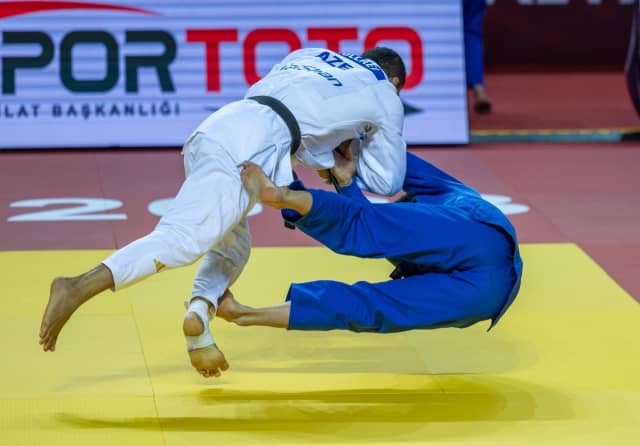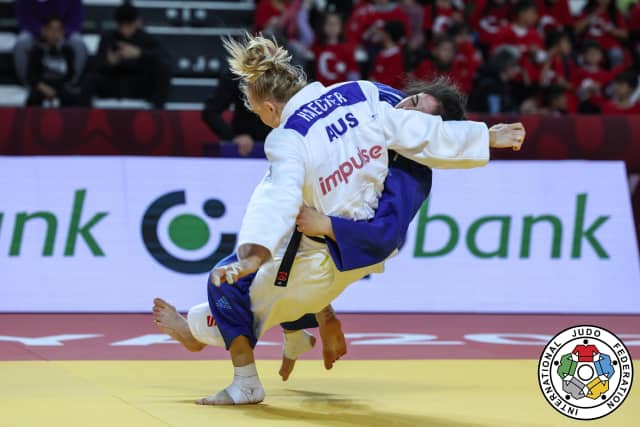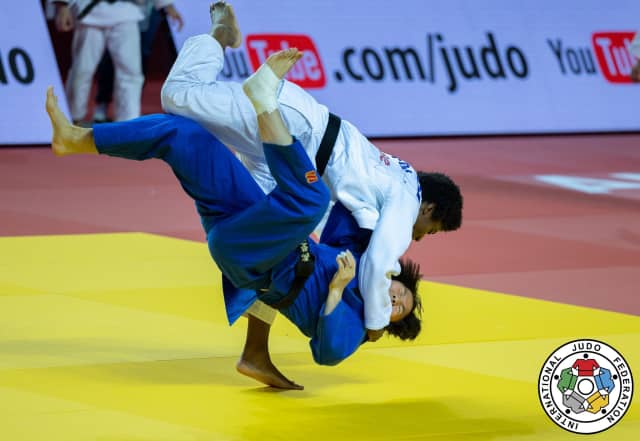For day 2, middleweight day, the technical analysis belongs to Cathy Fleury, “I have to begin with the de-ashi barai of Mollaei in the semi-final. It was an incredible finish for a contest between two real fighters. They brought so much positive action and even though Boltaboev (UZB) lost we saw the will to throw and engage. Mollaei’s control of timing and distance, using minimum energy for a maximum result, was a masterpiece, especially after more than 6 minutes of high level, exciting judo. This was not the only fight of the day ending with this kind of technical judo and this is so wonderful to see.
At -63kg Shemesh (ISR) was very good today, with her timing especially, attacking at just the right moment. She used this ability to win on the border of technical and tactical application but it was positive and clever. I was impressed by her robustness and her decision-making; when exactly to attack and when to allow the opponent some space to move, very intelligent work.
We saw Quadros in this category too, at the age of 35, applying excellent transition skills to use juji-gatame against the number one seed, Beauchemin-Pinard (CAN), to reach the final. She was wise and constructive and prioritised her use of energy perfectly. To sustain career for as long as she has is something very special and with performances like today’s we can say that she is not feeling the need to stop yet!
Having mentioned the precision of some being a key to success, we also saw some technical mistakes from athletes who only need tiny adjustments. Gahie (FRA) tried to pick up Feng (CHN) in the round of 16, for a ura-nage, but she didn’t employ the hips properly and this allowed Feng the space to introduce her ko-uchi and win that exchange and a place in the quarter-final. These are tiny details but they deserve attention. Gahie had the ability to win but with these tiny mistakes she allowed the other judoka to win, against the run of play. Precision is an important factor in judo and this contest really highlighted that. It was the difference between winning and losing.
Precision is Cathy Fleury’s key word for the day. It’s been the one element which has made the difference, splitting close contests and relegating those who haven’t adhered to the rules of efficiency and precision, to the bus home or perhaps, in more fortunate cases, to the repechage.
On the World Judo Tour, every athlete is strong and all have competition-standard conditioning. They’ve all trained and strategised and so the margins are small. Precision might just provide the extra 1% needed to turn a potential loss into a win.
For photos of Antalya and all IJF events, go to ijf.org/galleries



